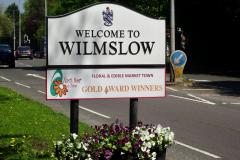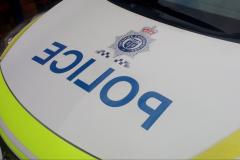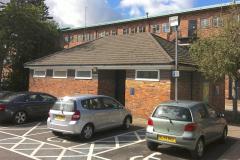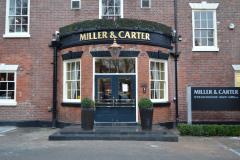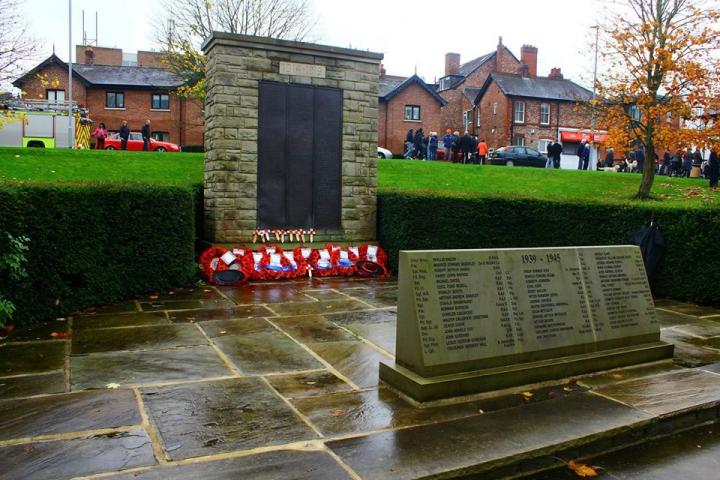
The Allies now took stock, braced themselves for another cold, freezing winter in the Flanders and French mud and laid their plans for spring. The Germans, learning from their sacrificial defensive struggles of 1916 began arrangements for the planned withdrawal in March to what became known as the "Hindenburg Line".
This was a formidable 300 mile long, straightened stretch of defences that saved manpower - possibly 10 divisions. They were busy elsewhere also. On the 19th Arthur Zimmerman, German Foreign Secretary, dispatched a secret telegram to the German Embassy in Washington to be sent on to Mexico City. This specified that in return for a future alliance against the USA, the Mexicans would receive (on a German victory) much of the land they had ceded to the USA in the war of 1848 (New Mexico, Texas and Arizona).
This telegram, infamously known as the "Zimmerman Telegram" was intercepted and decoded by the British who bided their time and released it to the USA in mid-February. German/US relations were by then already at a new low as Germany provocatively announced on the 31st January the return of unrestricted U-boat warfare on all shipping in an attempt to bring Britain to its knees. Meanwhile the Russian army continued to reel from its losses - morale was low and shortages, strikes and desertions increased alarmingly.
Our community lost two men this month. On the 6th, Ordinary Seaman (Z2522) James Desmond Ford of the Royal Navy Reserve died from illness in hospital at the Royal Navy Depot in Crystal Palace. (Known as the "wavy navy" the RNVR received volunteers to train onshore before joining the fleet once a certain level of competence had been reached. HMS Victory at Crystal Palace was one such training establishment.) James was born in 1897 and lived with his father, James Kent Ford (a general merchant and shipper), his mother Lucie Mildred and a servant at Park Villa, Dean Row. He is commemorated on Wilmslow civic memorial and in St Bart's, and is buried in the family grave in Alderley Edge Cemetery. His name is not on the village memorial so perhaps his body was moved north after the establishment of that memorial in April 1921 and placed in an existing family grave. His parents later lived, according to Kelly's Directory in 1939 at Bayside, Chorley Hall Lane, Alderley Edge.
Mesopotamia ("Mespot" to the troops) was to claim our second January fatality - Private Thomas Burgess, at age 23, of the 8th battalion Cheshire Regiment (34839). He was one of six local men with this surname who perished in the Great War. His father Arthur was a wheelwright who married Elizabeth Shuttleworth at St Bart's in 1882. In 1911 the family were living in Hawthorn Street with a servant. Thomas himself, a domestic gardener with Mr Stott of "Ferring" Wilmslow, had three sisters who worked as cotton weavers. Before the war he worked for Renold Chains.
Up until late 1916 the hastily arranged campaign to secure oil supplies in the Tigris-Euphrates valley had been a complete fiasco - few specific aims, poorly led, inadequately supplied. Thomas arrived in this theatre of war in February 1916 and was part of the brave, but futile attempt to relieve the British at Kut. His battalion (normally nearly 1,000 men) had been reduced to 279 men and 8 officers by August.
In late 1916 the new Commander in Chief, General Sir Stanley Maude energetically set about reorganizing the base at Basra, increasing manpower to 732 and ensuring ammunition, transport and regular supplies were more than adequate for the tasks ahead. On 19th January the successful attempt to retake Kut was launched. Thomas saw none of this. He had been hospitalized on 16th November 1916 and died of typhoid on 13th January 1917. He is interred in Amara War Cemetery along with 4,620 other Allied casualties in present day Iraq close to the border with Iran.
We discussed in our March 1915 article the brave contribution of Private Edwin F Miller of the 2nd Devons who died on the 10th of that month at Neuve Chapelle. A relative, Colin Henshaw, contacted wilmslow.co.uk to discuss the contribution to Britain's cause made by Edwin's father Joseph (Colin's great-grandfather) in earlier conflicts.
Joseph was born in Fermanagh in 1834 and served in the 27th Inniskilling Dragoon Guards. He was shipwrecked en route to India on the "Charlotte" in 1854 just off Port Elizabeth, South Africa. Joseph managed to swim ashore, but sadly 99 people died. He went on to serve in the Indian Mutiny and was awarded the Indian Mutiny Medal. He passed away peacefully in January 1917 and is buried in St Bart's graveyard, possibly one of the last veterans of that awful rebellion of 1857 - 59. At the time of his son's death he was a caretaker at School House, Church Road, Wilmslow.
Jon Armstrong and Alan Cooper, with a contribution from Michael Scaife Wilmslow Historical Society and a contribution from Colin Henshaw.
